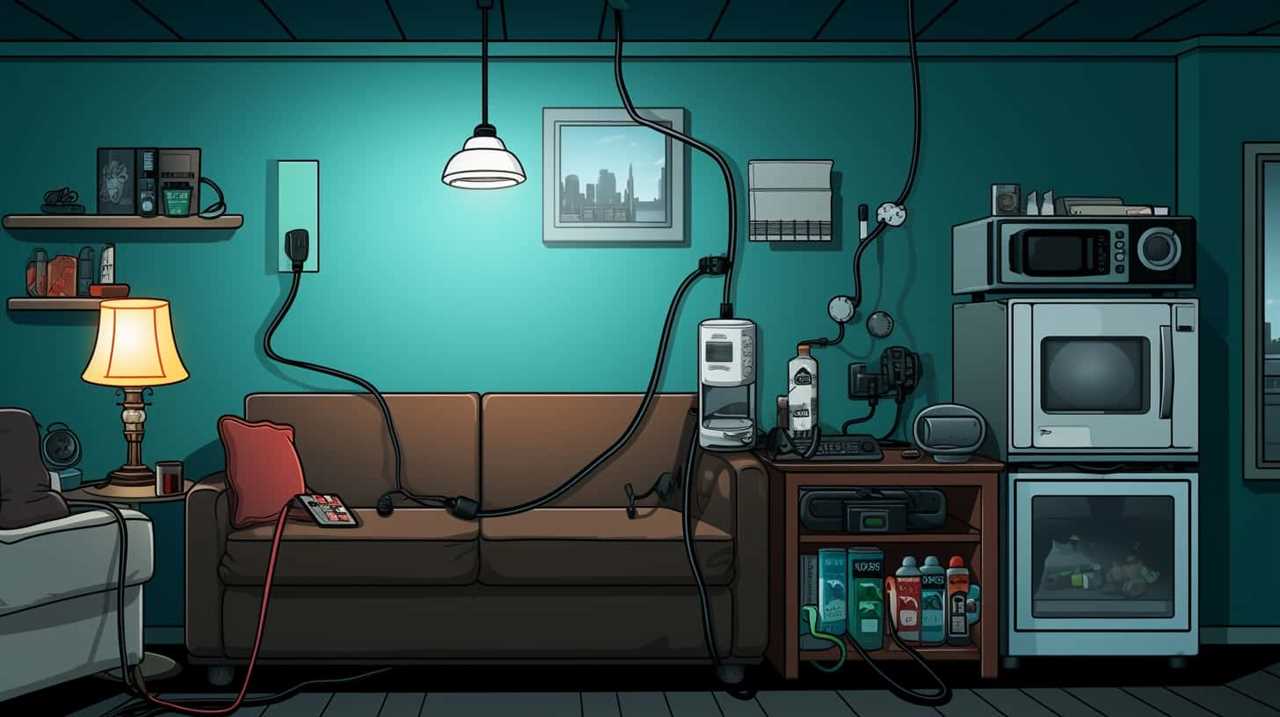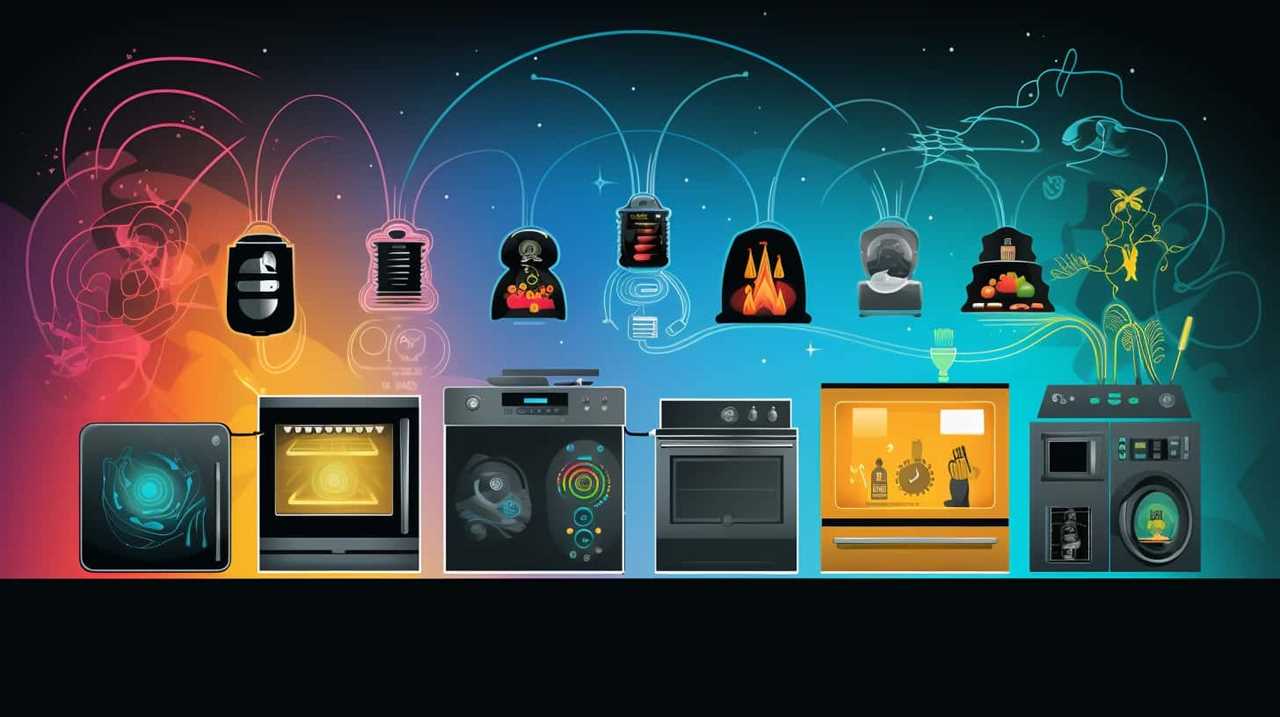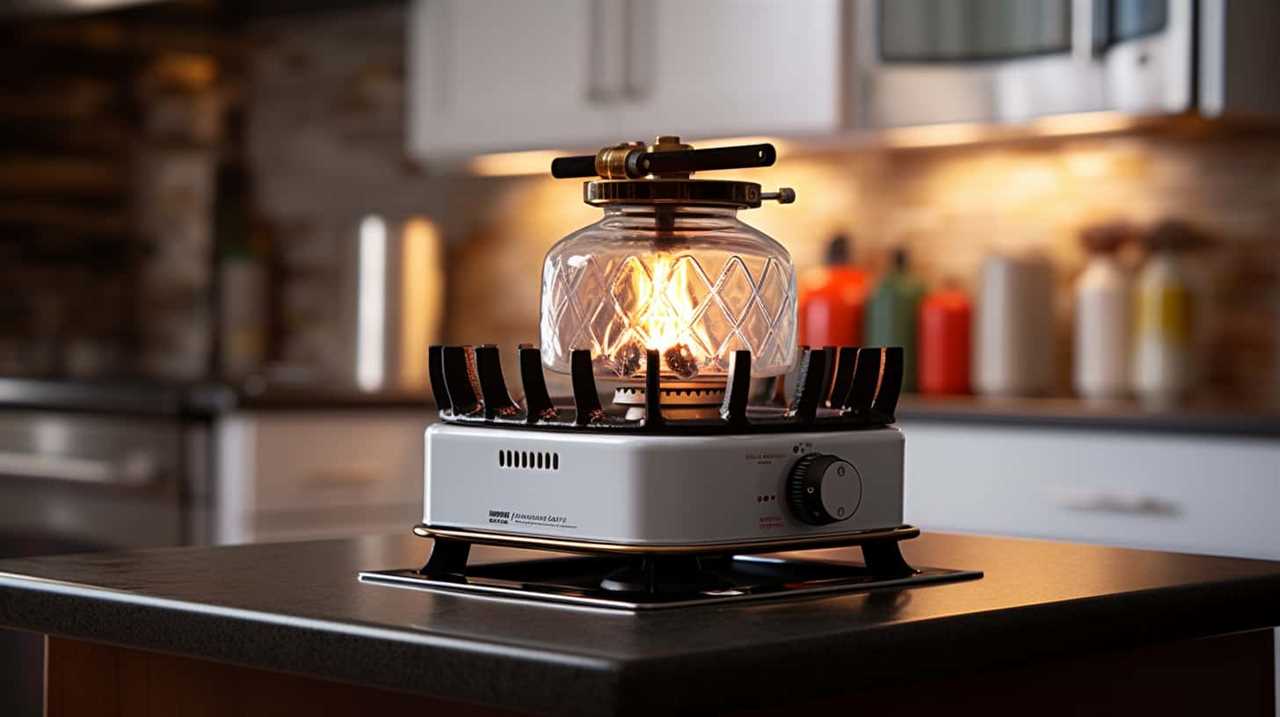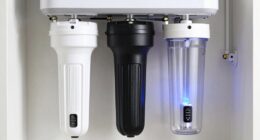So, you believe that simply throwing away those old appliances is the most convenient way to dispose of them, huh? Well, think again! Recycling your appliances is not only crucial for the environment, but it is also the right thing to do.
In this article, we’ll show you how to properly recycle your appliances, from checking for local recycling programs to disposing of small and large appliances safely. Get ready to become a master of appliance recycling!
Key Takeaways
- Recycling appliances reduces waste in landfills.
- Proper recycling promotes sustainability.
- Recycling appliances prevents hazardous materials from contaminating soil and water sources.
- Checking for local recycling programs and following proper disposal guidelines are essential for responsible appliance recycling.
Why Recycling Appliances Is Important
Recycling appliances is important because it significantly reduces the amount of waste that ends up in landfills. By recycling our appliances, we can help minimize the impact on the environment and promote sustainability.
One of the key benefits of local recycling is the reduction of electronic waste. Electronic waste, or e-waste, contains hazardous materials that can be harmful to both human health and the environment if not properly disposed of. By recycling our appliances locally, we ensure that these hazardous materials are safely managed and recycled, preventing them from ending up in landfills where they can contaminate soil and water sources.

To contribute to the reduction of electronic waste and help protect our environment, it’s important to check for local recycling programs that accept appliances.
Check for Local Recycling Programs
Now let’s talk about checking for local recycling programs.
It’s important to know what options are available near you so you can properly dispose of your appliances.
Many cities and towns have recycling programs specifically for appliances, and some even offer pick-up services.

Make sure to follow the proper disposal guidelines provided by your local recycling program to ensure that your appliances are recycled in an environmentally-friendly way.
Program Availability Near You
To find local recycling programs for appliance disposal, we can start by checking program availability in our area. Here are four things to consider when looking for recycling programs:
- Research online: Many cities have websites that provide information on local recycling programs. Check your city or county’s official website for details on where and how to recycle appliances.
- Contact local waste management agencies: Waste management agencies often have information on recycling programs in your area. Reach out to them for guidance on recycling appliances and any specific guidelines or regulations.
- Check with appliance retailers: Some appliance retailers offer recycling programs when you purchase a new appliance. Inquire with them to see if they’ve any options for recycling your old appliances.
- Community events: Keep an eye out for community events or recycling drives that specifically target appliance disposal. These events may provide convenient drop-off locations for recycling.
By exploring program availability in your area, you can take advantage of the recycling benefits while properly disposing of your appliances.
Now let’s move on to the next section to learn about proper disposal guidelines.

Proper Disposal Guidelines
After checking program availability in our area, we can now delve into the proper disposal guidelines for appliances, ensuring that we follow local recycling programs.
Proper recycling methods are essential for responsible waste management. When it comes to disposing of appliances, it’s important to first determine if they can be recycled or if they require special handling. Many local recycling programs have guidelines in place for different types of appliances, such as refrigerators, washing machines, and microwaves. These guidelines may include instructions on how to prepare the appliance for recycling, such as removing any hazardous materials or disconnecting certain parts.
It’s crucial to follow these guidelines to ensure that the appliance is disposed of properly and that any recyclable materials are recovered.
Gather Information on Accepted Appliances
Now let’s gather information on the accepted types of appliances for recycling.

It’s important to know which appliances can be recycled to ensure that we’re following the proper guidelines.
Additionally, understanding the recycling process will help us make informed decisions on how to dispose of our appliances responsibly.
Lastly, we should find out if there are any local collection centers where we can drop off our appliances for recycling.
Accepted Appliance Types
We accept a wide range of appliances for recycling, including refrigerators, washing machines, dryers, dishwashers, and microwaves. When it comes to responsible appliance disposal, it’s crucial to check recycling regulations in your area to ensure compliance.

Here are four types of appliances that are commonly accepted for recycling:
- Refrigerators: These large appliances contain refrigerants and other materials that must be properly disposed of to prevent environmental harm.
- Washing Machines: Whether top-loading or front-loading, washing machines can be recycled to recover valuable metals and reduce landfill waste.
- Dryers: Like washing machines, dryers can be recycled to recover metals and reduce the environmental impact of disposal.
- Dishwashers: Recycling dishwashers not only helps conserve resources but also prevents harmful chemicals from contaminating the environment.
Recycling Process Explained
During the recycling process, we gather information on the appliances that are accepted for recycling. This step is crucial to ensure the recycling benefits are maximized and the recycling process efficiency is optimized. By determining the specific types of appliances accepted, we can streamline the recycling process and prevent the inclusion of items that could hinder the efficiency of the recycling facility.
Accepted appliances typically include refrigerators, washing machines, dryers, dishwashers, stoves, and microwaves. It’s important to note that not all appliances can be recycled, as some contain hazardous materials that require specialized disposal methods.
Local Collection Centers
To gather information on the appliances accepted for recycling, we begin by contacting local collection centers. These centers serve as local drop-off points for appliances that are no longer in use.

Here are some key points to consider when contacting local collection centers:
- Accepted Appliances: Each center may have specific guidelines regarding the appliances they accept for recycling. It’s important to inquire about the types of appliances they can accommodate.
- Condition Requirements: Some centers may only accept appliances that are in working condition, while others may accept broken or non-functional appliances as well. It’s essential to clarify the condition requirements before dropping off your appliances.
- Recycling Fees: Some collection centers charge a recycling fee for accepting and processing appliances. Inquire about any applicable fees and their payment methods.
- Additional Services: Some centers may offer additional services like pickup or dismantling of appliances for a fee. It’s worth asking about these options if they’re available.
Prepare Your Appliances for Recycling
Before recycling your appliances, it’s important to ensure they’re properly prepared for disposal.
To begin, you should check for any specific recycling requirements for your appliances. Some appliances may need to have certain parts removed or disposed of separately.
Additionally, it’s crucial to find recycling options nearby. This can be done by researching recycling centers or contacting your local waste management facility.

Once you have identified a recycling option, you can start preparing your appliances. Begin by unplugging them from the power source and disconnecting any water or gas lines.
Next, clean the appliances thoroughly, removing any food residue or debris.
Finally, secure any loose parts to prevent damage during transportation.
Remove Personal Data and Secure Sensitive Information
After preparing your appliances for recycling, it’s now important to address the issue of removing personal data and securing sensitive information. Here are some steps to ensure data protection and secure data:
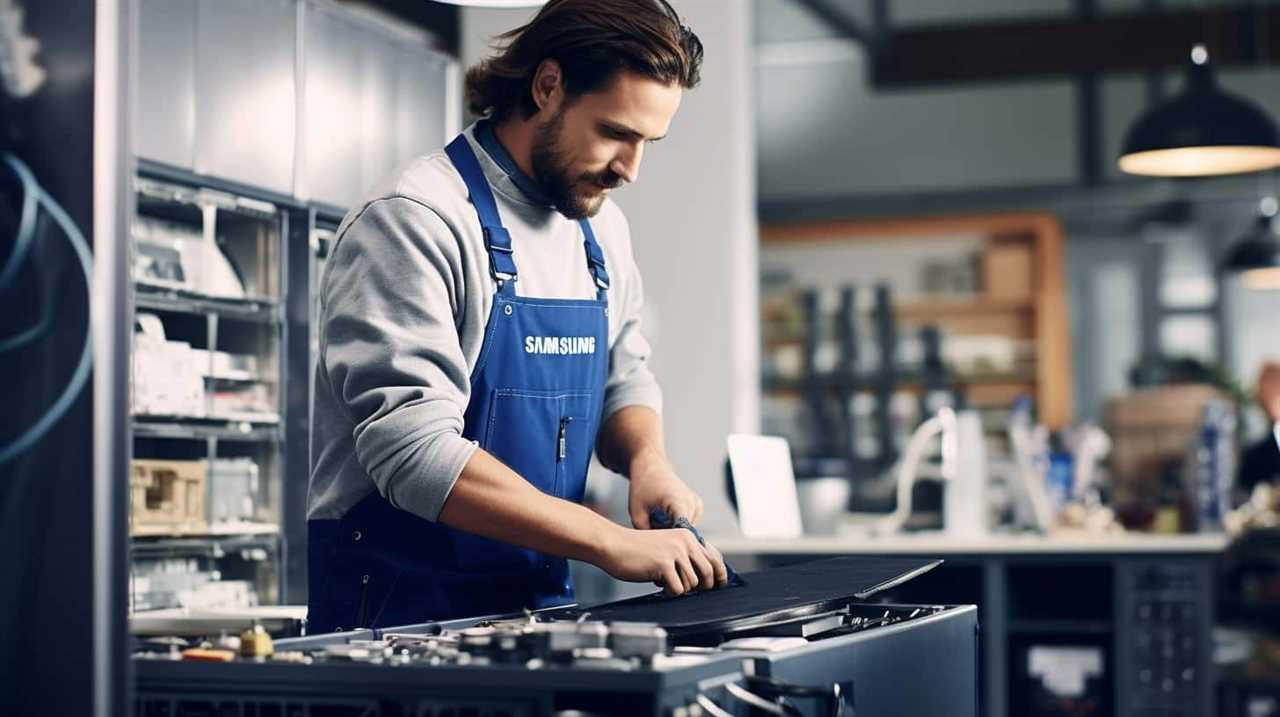
- Backup and transfer: Before recycling your appliances, backup and transfer any important data to a secure location, such as an external hard drive or cloud storage.
- Factory reset: Perform a factory reset on your devices to erase all personal data. Consult the manufacturer’s instructions or search online for specific steps on how to do this for your appliance.
- Remove SIM cards and memory cards: For devices like smartphones and cameras, remove SIM cards and memory cards to prevent any personal information from being accessed.
- Physical destruction: If you’re concerned about sensitive data, physically destroy the storage components of your appliances, such as hard drives or SSDs, to ensure complete data security.
Find a Drop-off Location Near You
Let’s find a drop-off location near us to recycle our appliances.
Recycling drop-off sites can be found in various places, such as recycling centers, retail stores, or community events.
To locate these drop-off locations, there are a few options we can consider.
First, we can check with our local waste management department or environmental agency. They often have information on recycling drop-off sites in our area.
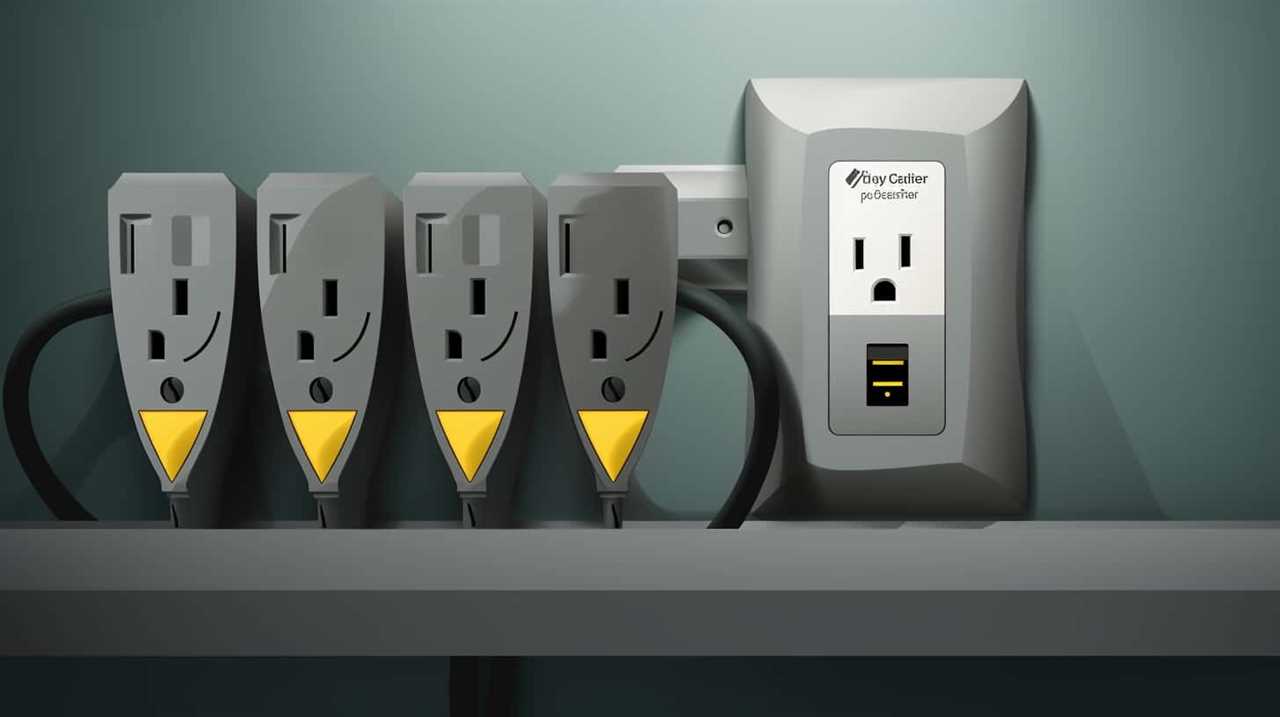
Another option is to visit websites or use apps that provide a database of recycling centers and drop-off locations. These tools allow us to search by our location and the type of appliance we want to recycle.
Schedule a Pick-up Service
To make recycling appliances even more convenient, we can schedule a pick-up service for our unwanted items. Here are four important things to consider when scheduling a pick-up service for appliance recycling:
- Research pick-up services in your area: Look for local recycling centers or waste management companies that offer pick-up services for appliances. Check their websites or call them to inquire about their services and availability.
- Determine the pick-up scheduling process: Find out how to schedule a pick-up. Some companies may have an online form to fill out, while others may require a phone call or email. Be prepared to provide information about the appliances you want to recycle and your preferred pick-up date.
- Understand recycling fees: Ask about any recycling fees associated with the pick-up service. Some companies may charge a fee based on the type and size of the appliances being recycled. Make sure to clarify the fees upfront to avoid any surprises.
- Prepare the appliances for pick-up: Before the scheduled pick-up date, make sure to clean and disconnect the appliances. Remove any personal items and ensure that they’re easily accessible for the pick-up team.
Consider Donating Working Appliances
Considering donating working appliances can be a great way to extend their lifespan and support those in need. When you donate appliances, you not only help someone in need but also reduce waste and contribute to a more sustainable environment.
By giving your appliances a second life, you’re preventing them from ending up in landfills where they can release harmful chemicals. Additionally, donating appliances can be a tax-deductible contribution, providing you with financial benefits.
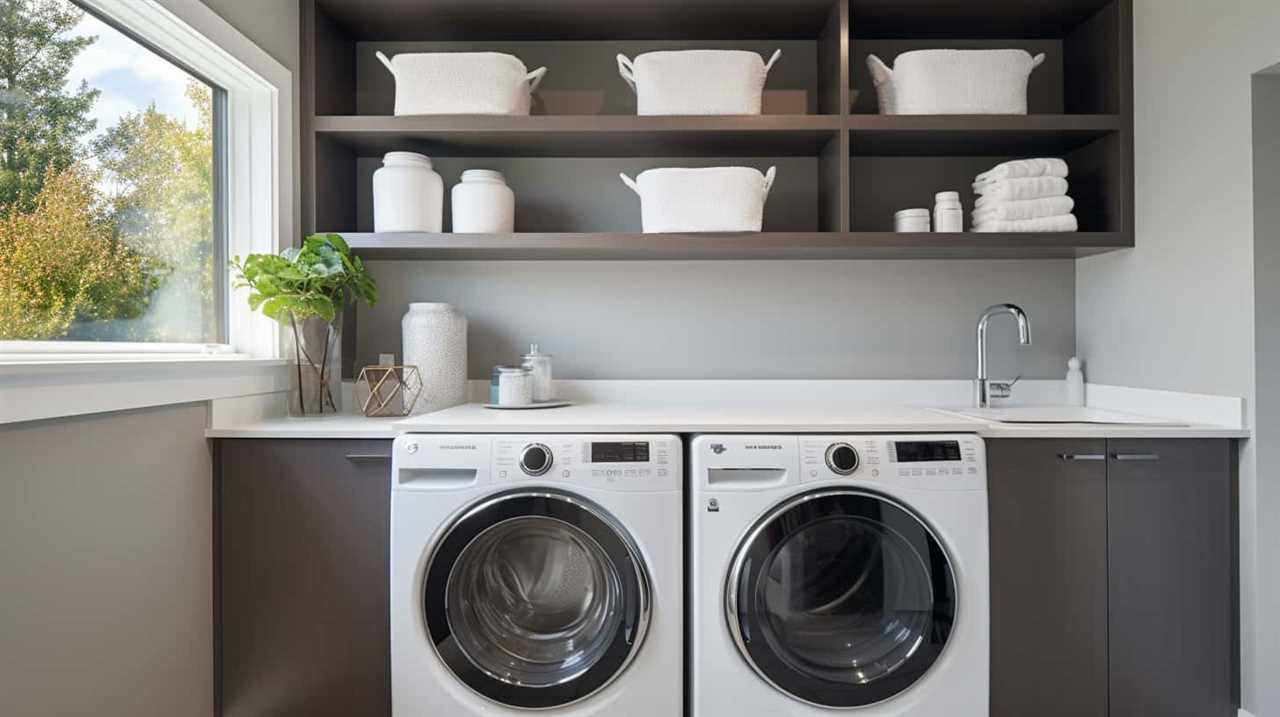
Many organizations, such as charities and non-profit thrift stores, accept donations of working appliances and distribute them to individuals or families who can’t afford new ones. By donating your appliances, you’re making a positive impact on both the community and the environment.
Recycle Refrigerators and Freezers Properly
When it comes to recycling refrigerators and freezers, it’s important to consider safe disposal methods and reduce the environmental impact.
Properly recycling these appliances not only prevents harmful substances from entering the environment but also allows for the recovery of valuable materials.
Safe Disposal Methods
We recycle refrigerators and freezers properly by safely disposing of them using specific methods. When it comes to safe disposal of these appliances, there are several options available to ensure minimal environmental impact. Here are four methods to consider:
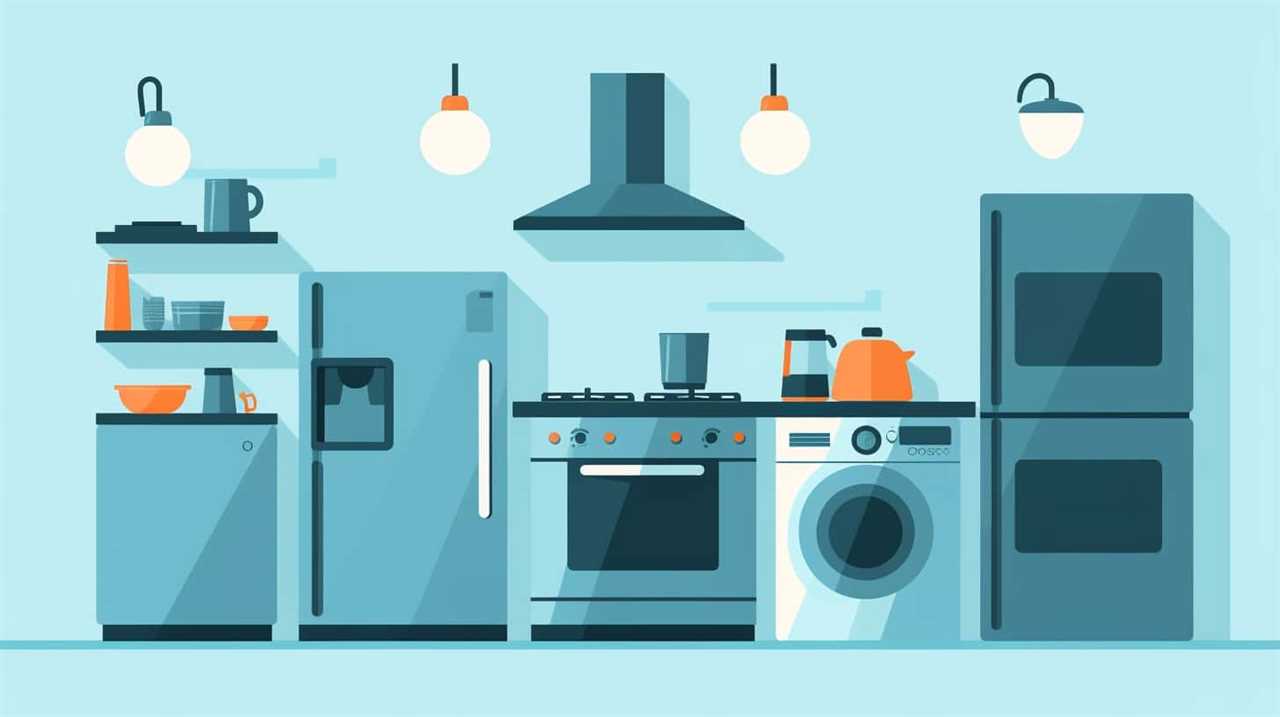
- Local recycling programs: Many communities have recycling programs specifically designed for appliances. Contact your local waste management or recycling center to find out if they accept refrigerators and freezers.
- Manufacturer take-back programs: Some appliance manufacturers offer take-back programs where they’ll collect and properly dispose of old refrigerators and freezers. Check with the manufacturer of your appliance to see if they offer this service.
- Certified recyclers: Look for certified recyclers who specialize in recycling appliances. These recyclers have the knowledge and equipment to safely handle the refrigerants and other hazardous materials found in refrigerators and freezers.
- Donation: If your refrigerator or freezer is still in good working condition, consider donating it to a local charity or organization in need. This not only helps the environment but also benefits those in your community.
Environmental Impact Reduction
To minimize the environmental impact, we can reduce the environmental impact of recycling refrigerators and freezers properly. Environmental awareness and understanding the recycling benefits are key to achieving this.
When we recycle these appliances, we prevent harmful substances from polluting our environment and conserve valuable resources. Recycling refrigerators and freezers can significantly reduce greenhouse gas emissions, as well as save energy and reduce the need for raw materials.
Additionally, recycling these appliances properly ensures that hazardous materials, such as refrigerants, oils, and mercury, are safely disposed of.
Dispose of Small Appliances Safely
By properly disposing of small appliances, we can reduce waste and minimize environmental impact. Here are four eco-friendly options for disposing of small appliances:

- Donate: If your small appliance is still in working condition, consider donating it to a local charity or thrift store. This allows someone else to benefit from its use while reducing waste.
- Recycling programs: Many cities have recycling programs specifically for small appliances. Check with your local recycling center or waste management facility to see if they accept these items.
- Manufacturer take-back programs: Some appliance manufacturers offer take-back programs where they’ll collect and properly dispose of their products. Check the manufacturer’s website or contact their customer service for more information.
- Electronic waste recycling: Small appliances can be taken to electronic waste recycling centers. These centers specialize in properly recycling electronic devices, ensuring that any hazardous materials are disposed of safely.
Recycle Large Appliances With Care
Continuing with our eco-friendly options for appliance disposal, let’s now focus on how to recycle large appliances with care.
Recycling appliances is important for several reasons. Firstly, it helps reduce landfill waste, which can release harmful toxins into the environment. Secondly, recycling large appliances allows for the recovery of valuable materials such as metal, glass, and plastic, which can be reused in the manufacturing process.
When it comes to where to recycle appliances, there are several options available. Many local recycling centers accept large appliances, and some even offer pick-up services. Additionally, appliance retailers often have recycling programs in place where you can drop off your old appliances.
It’s important to choose a reputable recycling facility that follows proper disposal protocols to ensure your appliances are recycled safely and responsibly.

Moving on to the next section, let’s explore how to properly recycle electronic appliances.
Properly Recycle Electronic Appliances
Now let’s delve into the proper way to recycle electronic appliances and ensure their environmentally-friendly disposal. When it comes to electronic waste, it’s crucial to gather recycling information and take the necessary steps to reduce electronic waste.
Here are four practical tips to help you recycle your electronic appliances responsibly:
- Research local recycling programs: Look for facilities near you that accept electronic waste. Many cities have dedicated centers where you can drop off your old devices.
- Donate or sell functional appliances: If your electronic appliance is still in good working condition, consider donating it to a local charity or selling it online. This way, someone else can benefit from it, reducing the need for new products.
- Find e-waste recycling events: Keep an eye out for community events or special recycling drives that focus on electronic waste. These events often provide convenient drop-off locations for different types of electronic devices.
- Opt for manufacturer recycling programs: Some electronic manufacturers offer recycling programs for their products. Check their websites or contact customer support to learn about their recycling options.
Tips for Responsible Appliance Disposal
To responsibly dispose of appliances, we can take several steps to ensure their proper disposal and minimize environmental impact.
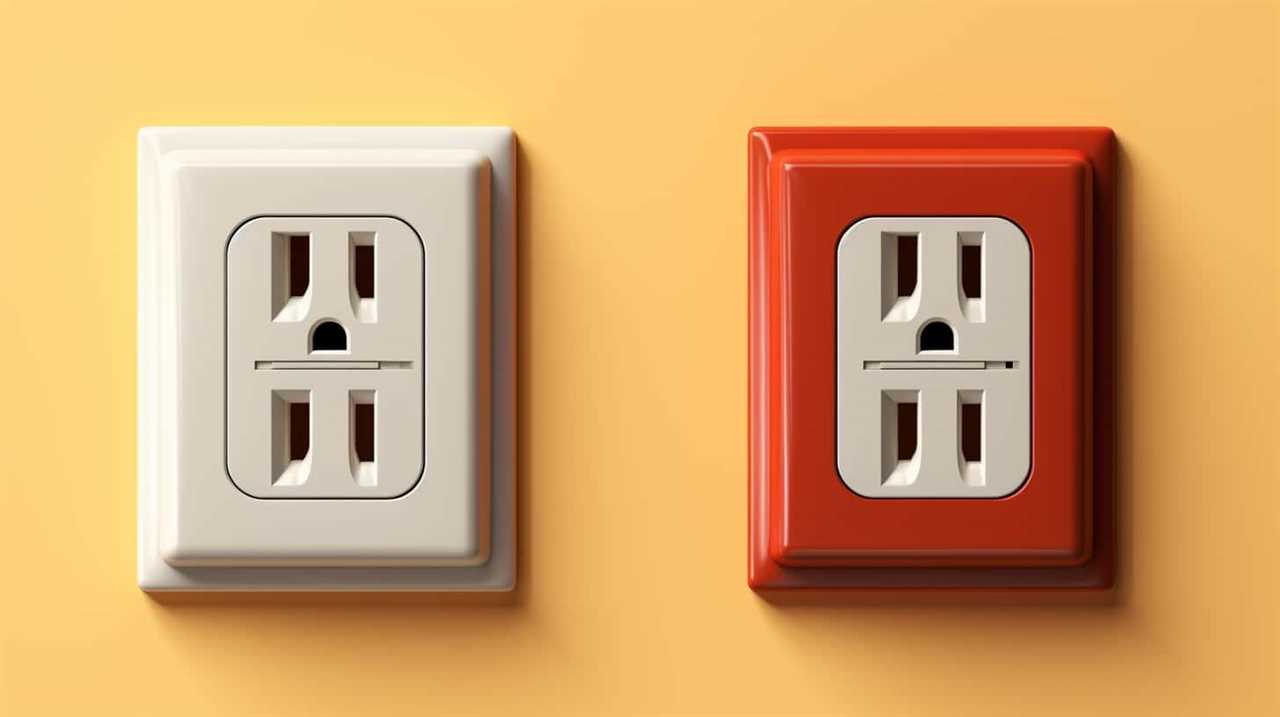
First, it’s important to research and identify proper disposal methods for each specific appliance. Some appliances may require special handling due to their hazardous components, such as refrigerants or mercury.
Next, consider donating the appliance if it’s still in working condition. Many local charities and organizations accept used appliances and will refurbish them for those in need.
If disposal is necessary, contact your local waste management facility to inquire about appliance recycling programs. These programs often have specific guidelines for drop-off or pick-up services.
Finally, remember to remove any personal information from the appliance before disposal to protect your privacy.

Frequently Asked Questions
What Are the Potential Environmental Impacts of Not Recycling Appliances?
Not recycling appliances can have potential environmental impacts. By not recycling, harmful materials can end up in landfills, contributing to pollution and climate change. Recycling appliances offers potential solutions and benefits for the environment.
Can I Recycle Appliances That Are No Longer in Working Condition?
We can recycle appliances that no longer work! There are various recycling options available, and by recycling, we can reduce waste, conserve resources, and contribute to a healthier environment. Let’s explore the benefits of recycling appliances.
Are There Any Specific Guidelines for Preparing Appliances Before Recycling?
There are specific guidelines for preparing appliances before recycling. It’s important to follow these guidelines to ensure proper recycling and minimize any potential risks or hazards associated with the appliances.
How Can I Ensure That My Personal Data Is Completely Removed From the Appliance Before Recycling?
To ensure data privacy, we must properly dispose of our appliances. One interesting statistic is that over 90% of recycled appliances still contain personal data. We need to follow proper guidelines to protect ourselves.

Can I Recycle Electronic Appliances That Contain Hazardous Materials?
Yes, we can recycle electronic appliances that contain hazardous materials. It is important to ensure the proper disposal of these appliances to prevent harm to the environment and human health.
Conclusion
Recycling appliances isn’t only important for the environment, but also for ensuring our personal information is secure.
By checking for local recycling programs and gathering information on accepted appliances, we can easily prepare our appliances for recycling. Remember to remove personal data and dispose of small appliances safely.
When recycling large appliances, do so with care and properly recycle electronic appliances.
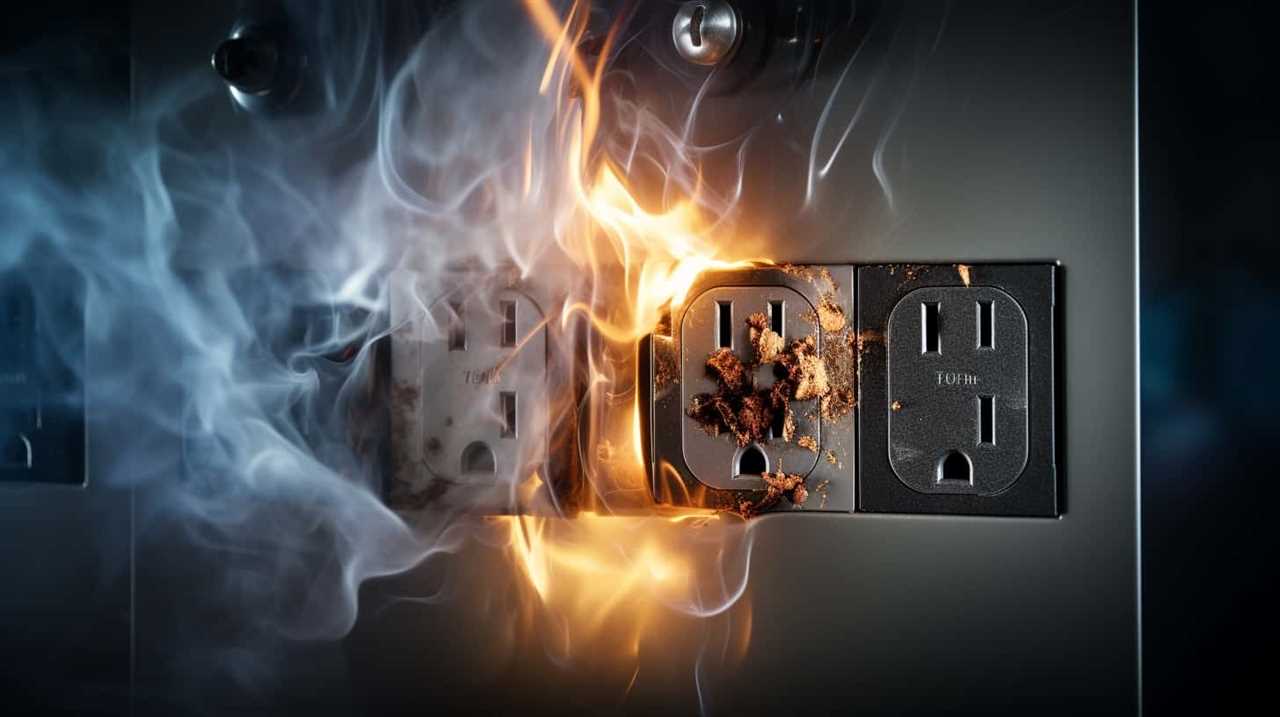
So, why not take the responsible approach and recycle our appliances?
